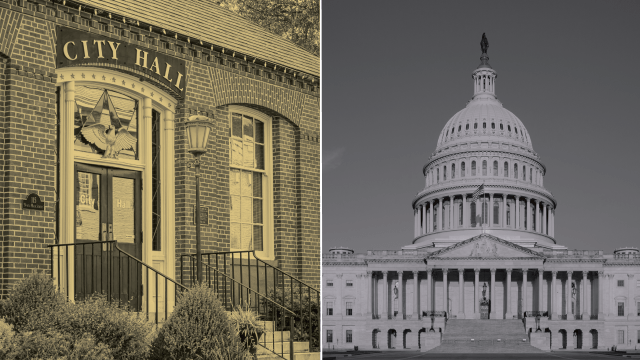
Just after Election Day in 2024, 69% of registered voters said the elections in their community were run and administered very well, according to a Pew Research Center survey. Yet only 43% said the same about elections across the United States.
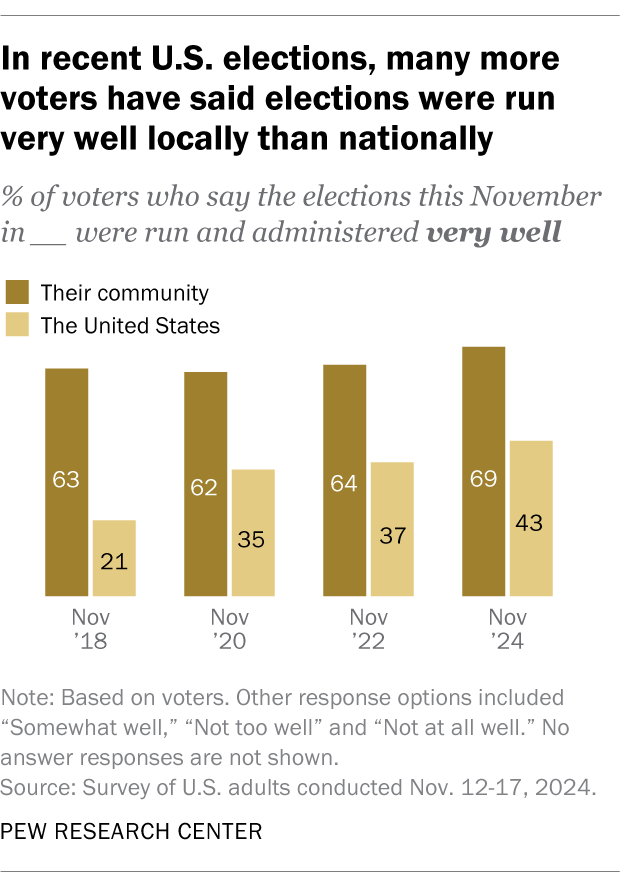
This divide between voters’ perceptions of local and national election administration isn’t new. We saw the same pattern after the elections of 2022, 2020 and 2018. The gap was largest in 2018, when 63% of voters said elections in their community were administered very well, while only 21% said this about elections across the country.
Election administration is far from the only topic where we see Americans expressing more positive views about local conditions than national ones. On issues as varied as education and crime, Americans often have a rosier view of how things are going in their communities than in the nation as a whole.
Perhaps the most prominent example of this phenomenon dates back to the late 1970s, when political scientist Richard Fenno Jr. found that Americans tend to approve of congressional representatives from their districts even as they disapprove of Congress as a whole. That disconnect is sometimes known as “Fenno’s paradox,” and it helps explain why so many members of congress get reelected even when approval of Congress is low.
Our own research has found this pattern as well. In a July 2023 survey, 56% of Americans said their local elected officials were doing a good job, and 41% said the same about their representative in Congress. But only 26% had a favorable view of Congress as a whole.
Local and federal governments
Americans tend to view their local government more positively than the federal government. In another 2023 Center survey, 61% of U.S. adults had a favorable view of their local government, while 22% felt positively about the federal government – a difference of 39 percentage points. Gallup found a similar disconnect when asking about trust and confidence in local versus federal government.
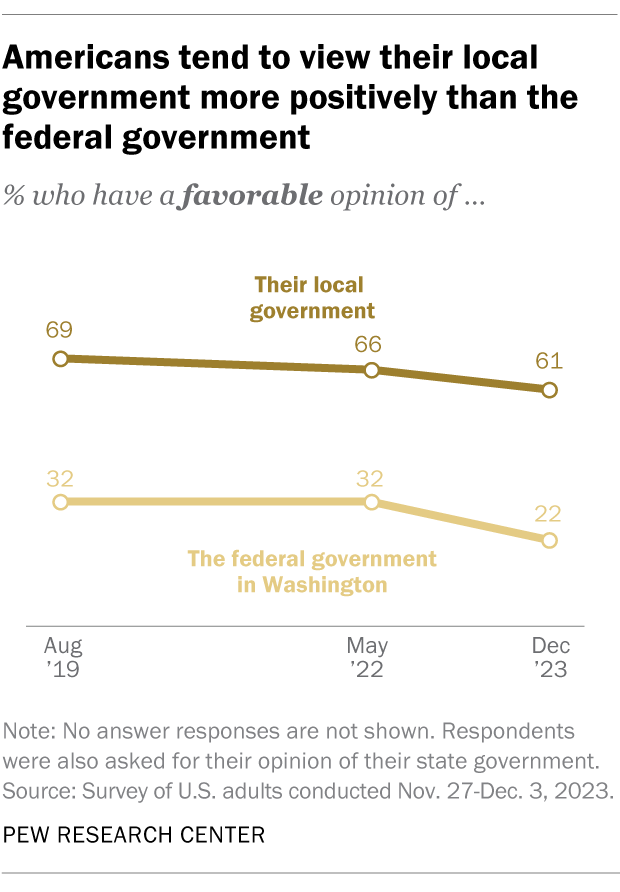
Education
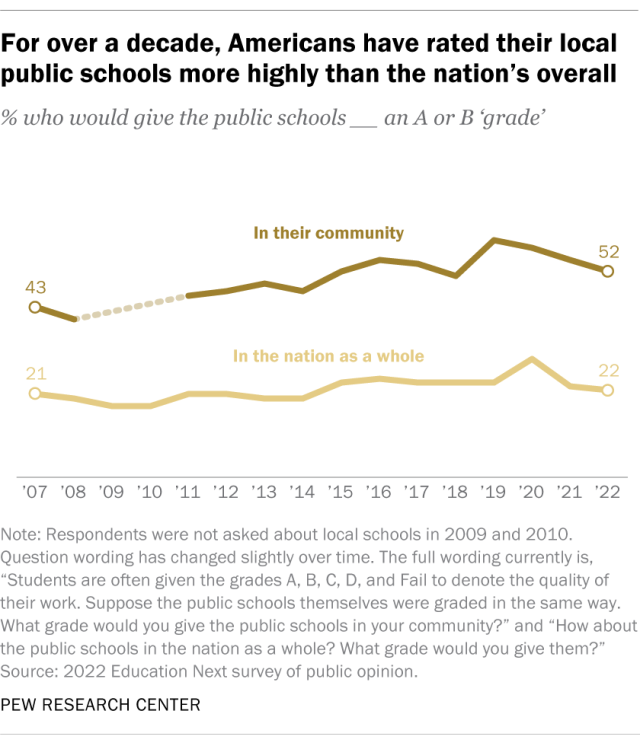
When it comes to education, U.S. adults tend to say the public schools in their community are doing better than the nation’s public schools as a whole, according to Education Next. In 2022, the latest year with available data, 52% of Americans said they’d give their local public schools an A or B “grade,” while only 22% said this about public schools nationally.
This gap has existed for more than a decade, and it persists among Americans of different political orientations and even among teachers. In 2021, for example, teachers were 30 points more likely to give schools in their local area an A or B grade than to give the same positive marks to schools nationally. (Teacher data was not available on this question in 2022.)
News media
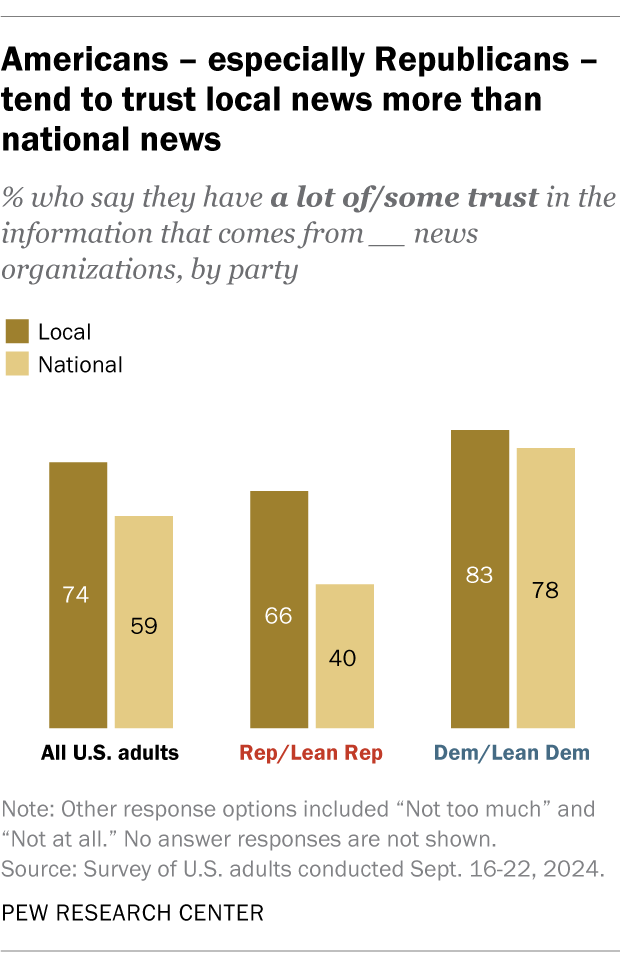
Americans also express higher trust in their local media than in national media outlets – something Center surveys have found since 2016. Last year, 74% of Americans said they had at least some trust in the information that comes from local news organizations, but 59% said the same about information from national news organizations.
This gap is driven by Republicans’ low trust in national media. While 66% of Republicans and Republican-leaning independents in last year’s survey expressed at least some trust in information from local news outlets, only 40% had the same level of trust in information from national outlets.
Crime and policing
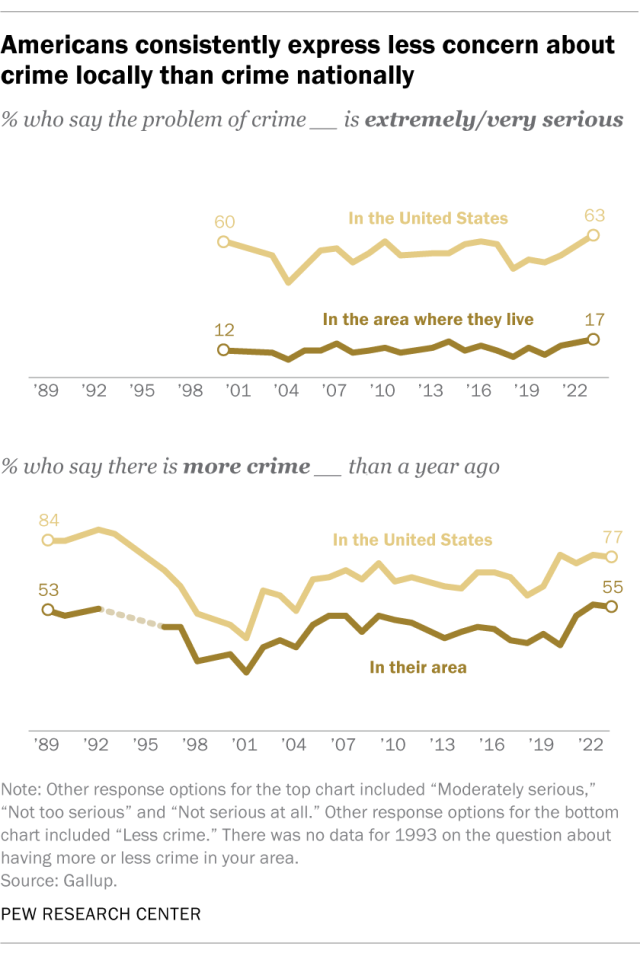
Crime is another topic where Americans have long viewed the local and national pictures differently. Since 2000, Gallup has found that U.S. adults are much less likely to say crime is a serious problem locally than to say it’s a serious problem nationally. They’re also consistently much less likely to say crime is rising locally than nationally (even though crime rates today are much lower than in the early 1990s).
On a related issue, Center data from 2023 shows that Americans gave local police higher ratings than police across the country on several measures.
Related: What the data says about crime in the U.S.
Broader assessments
Even on the broadest of measures, Americans tend to rate their local communities more positively than the country overall. In a 2023 survey by the American Communities Project, 63% of Americans said their communities were going in the right direction, including majorities in every community type the researchers looked at. Meanwhile, only 18% of Americans said the country was going in the right direction. In some communities, the share who said this was as low as 10%.
What’s behind this pattern?
It’s not entirely clear why Americans consistently express more positive views about local issues than national issues. Many people have some control over where they live – they choose locales and neighborhoods to suit their needs, tastes and budget – so it is understandable that they may have more positive views of their local community than of other places. Similarly, their views of local issues (crime or education, for example) may be shaped by personal experience in a way that national issues are not.
When it comes to views of Congress specifically, another concept outlined by Richard Fenno Jr. may help explain the differences we see. His “home style” theory suggests that legislators tailor their behavior to suit their home district to give themselves the best chance of reelection.
